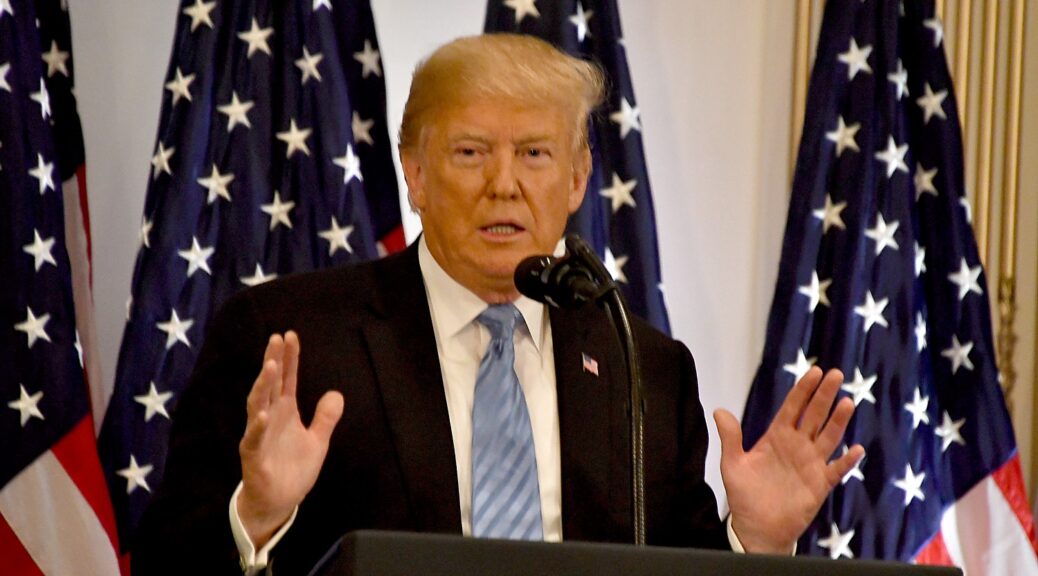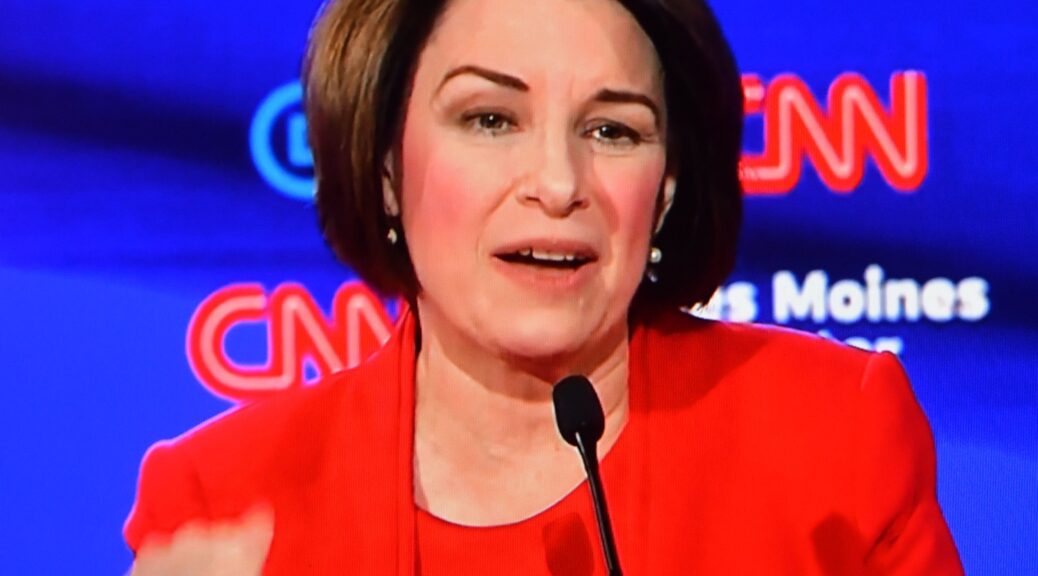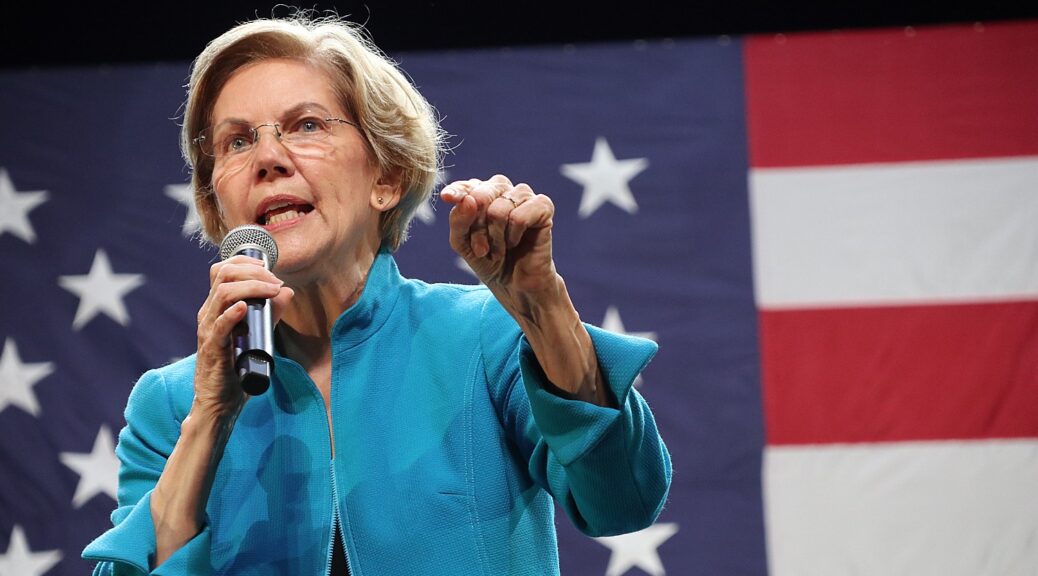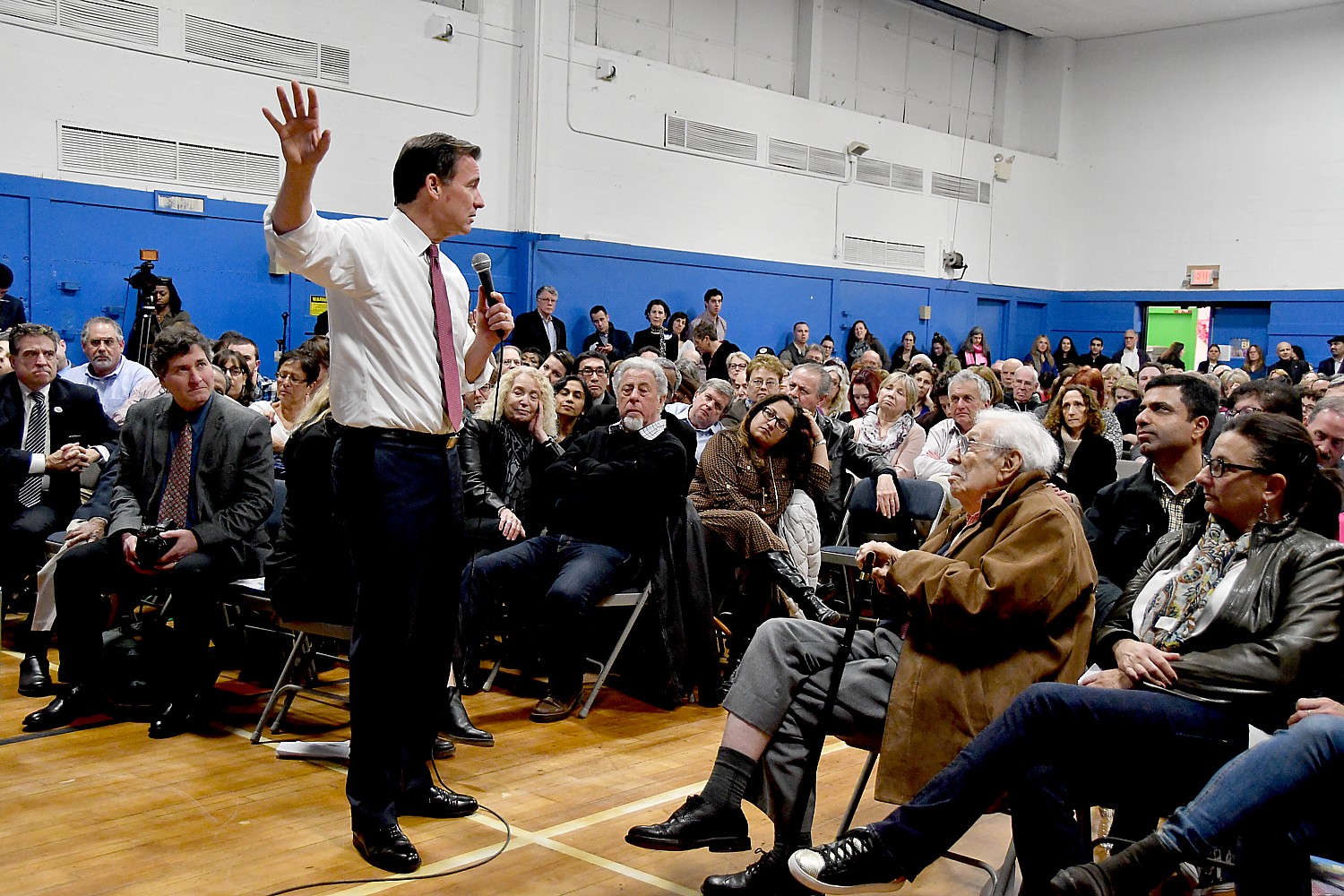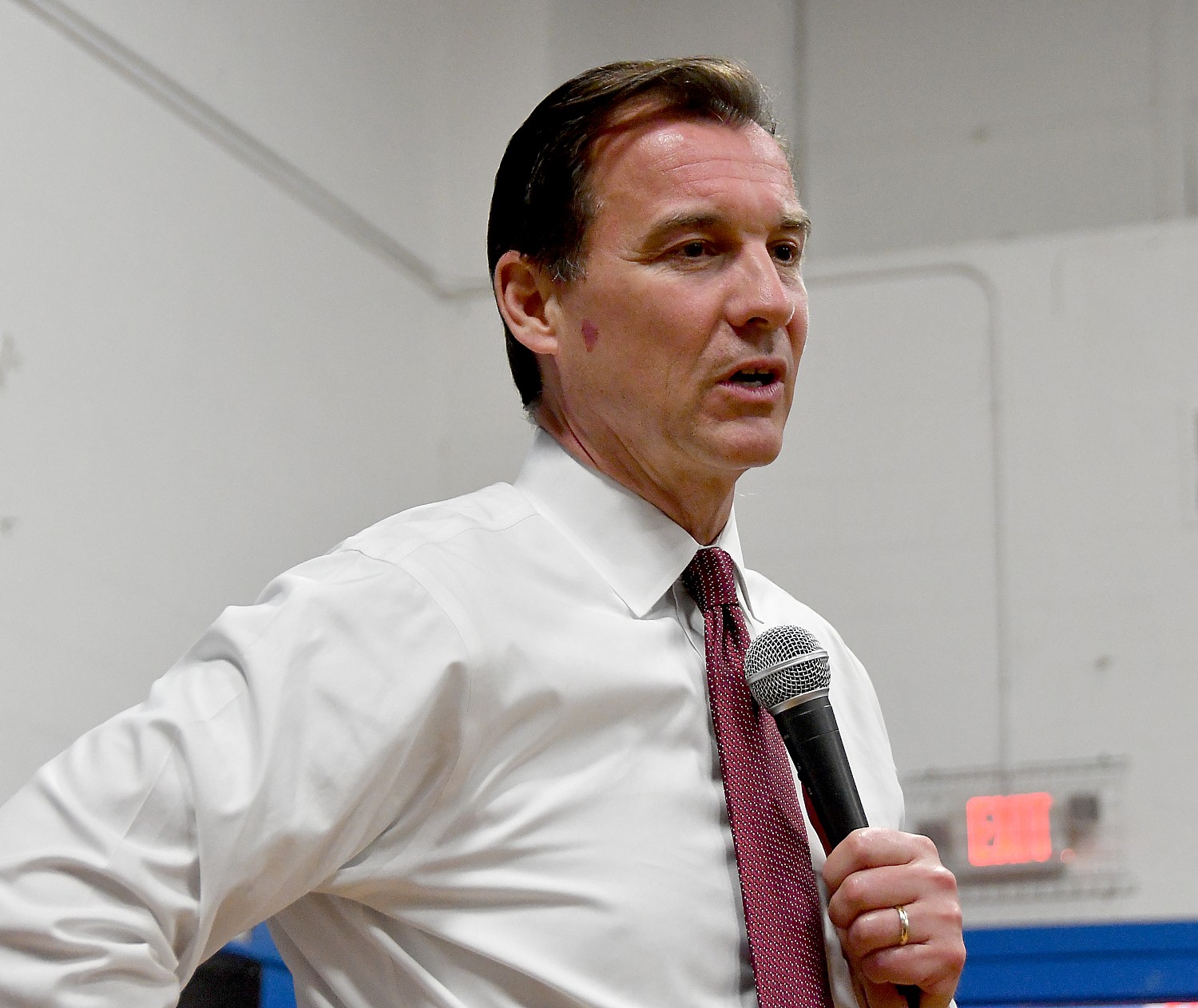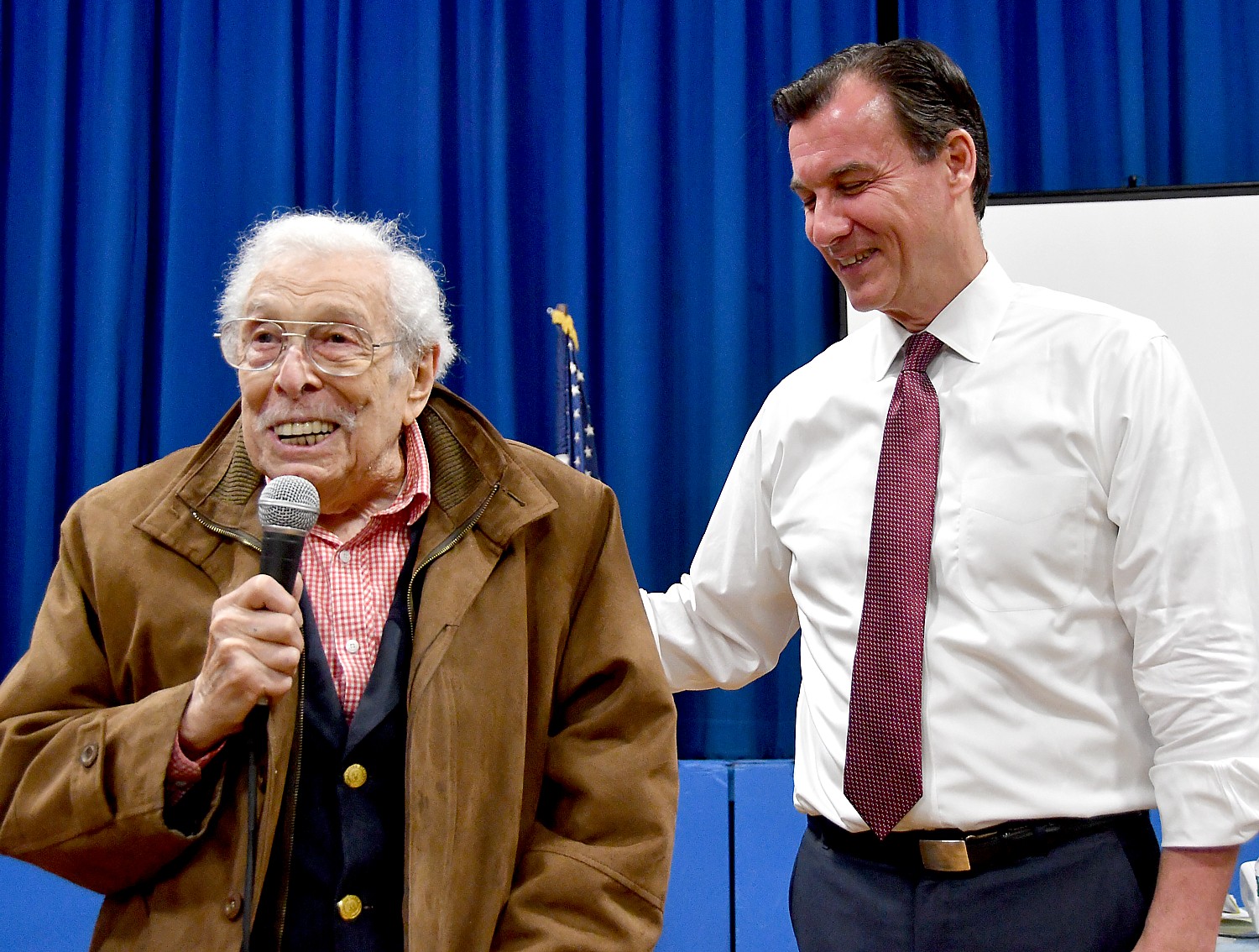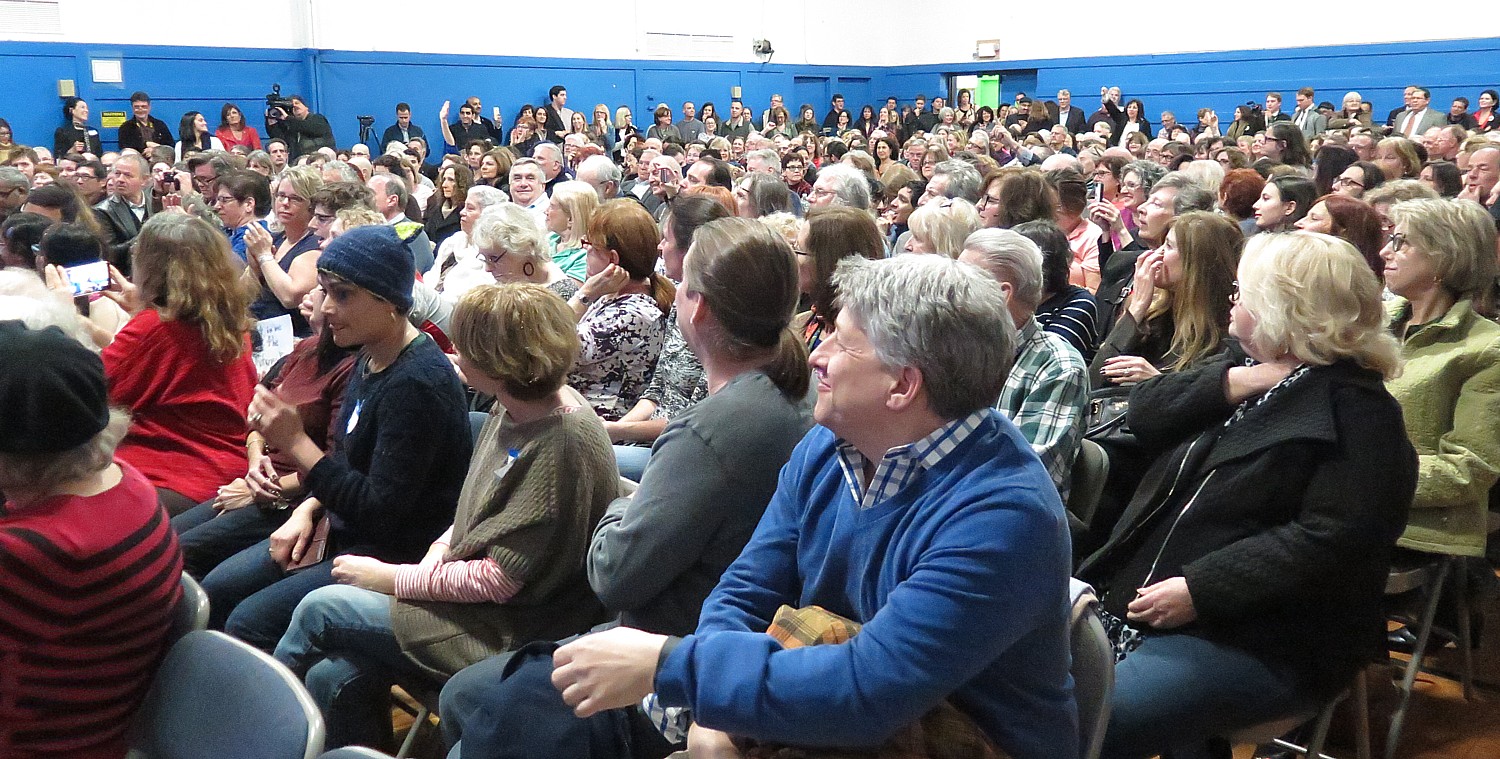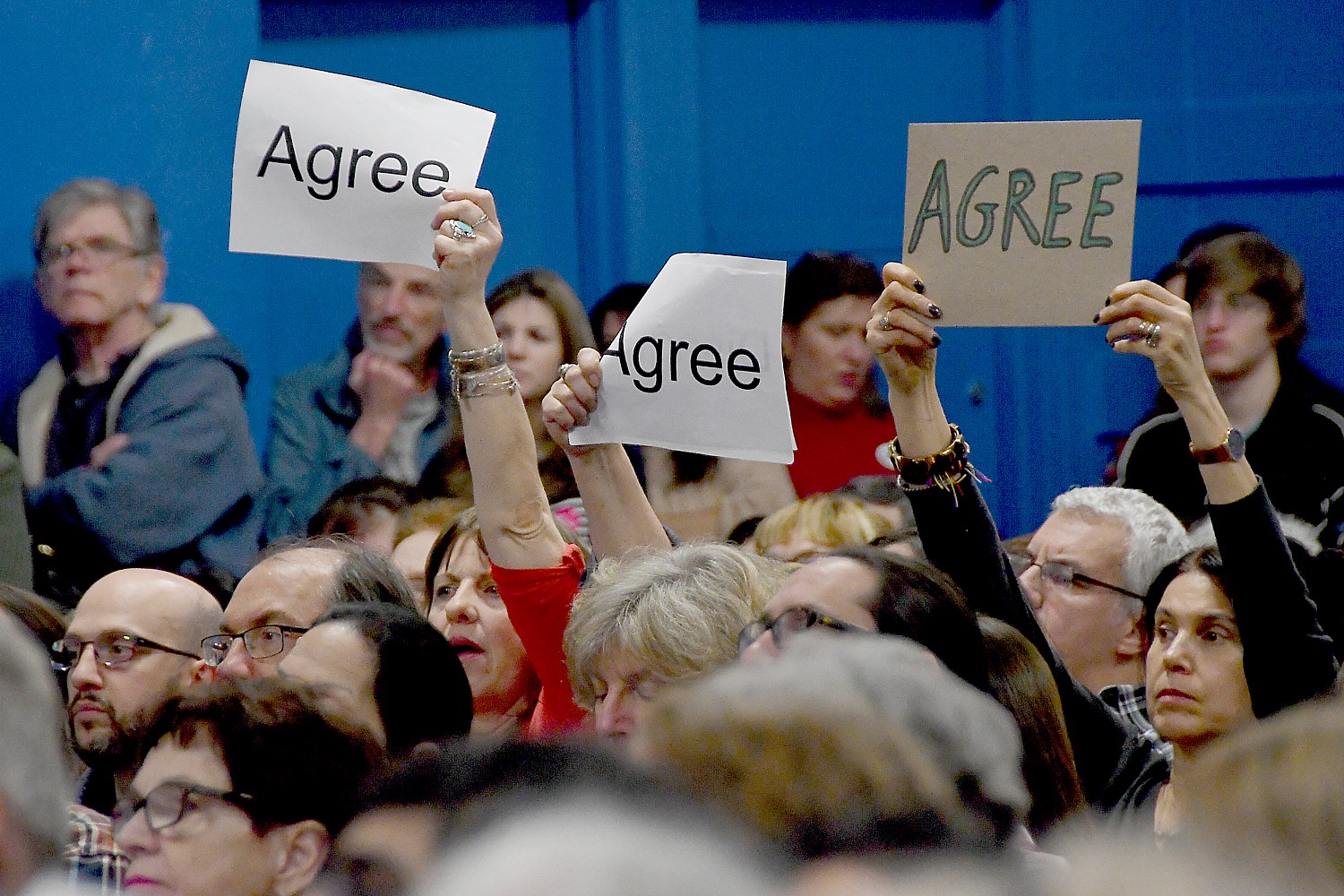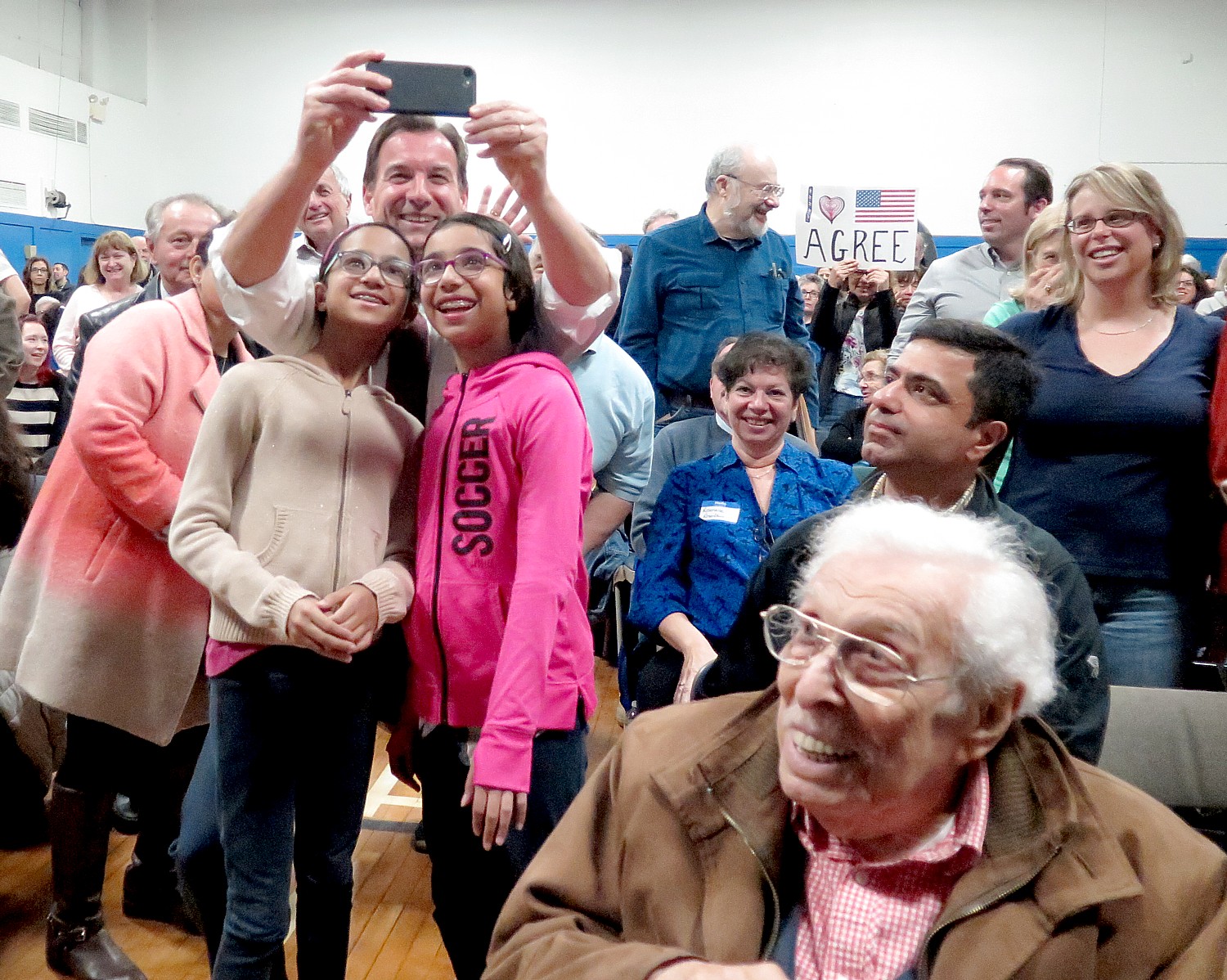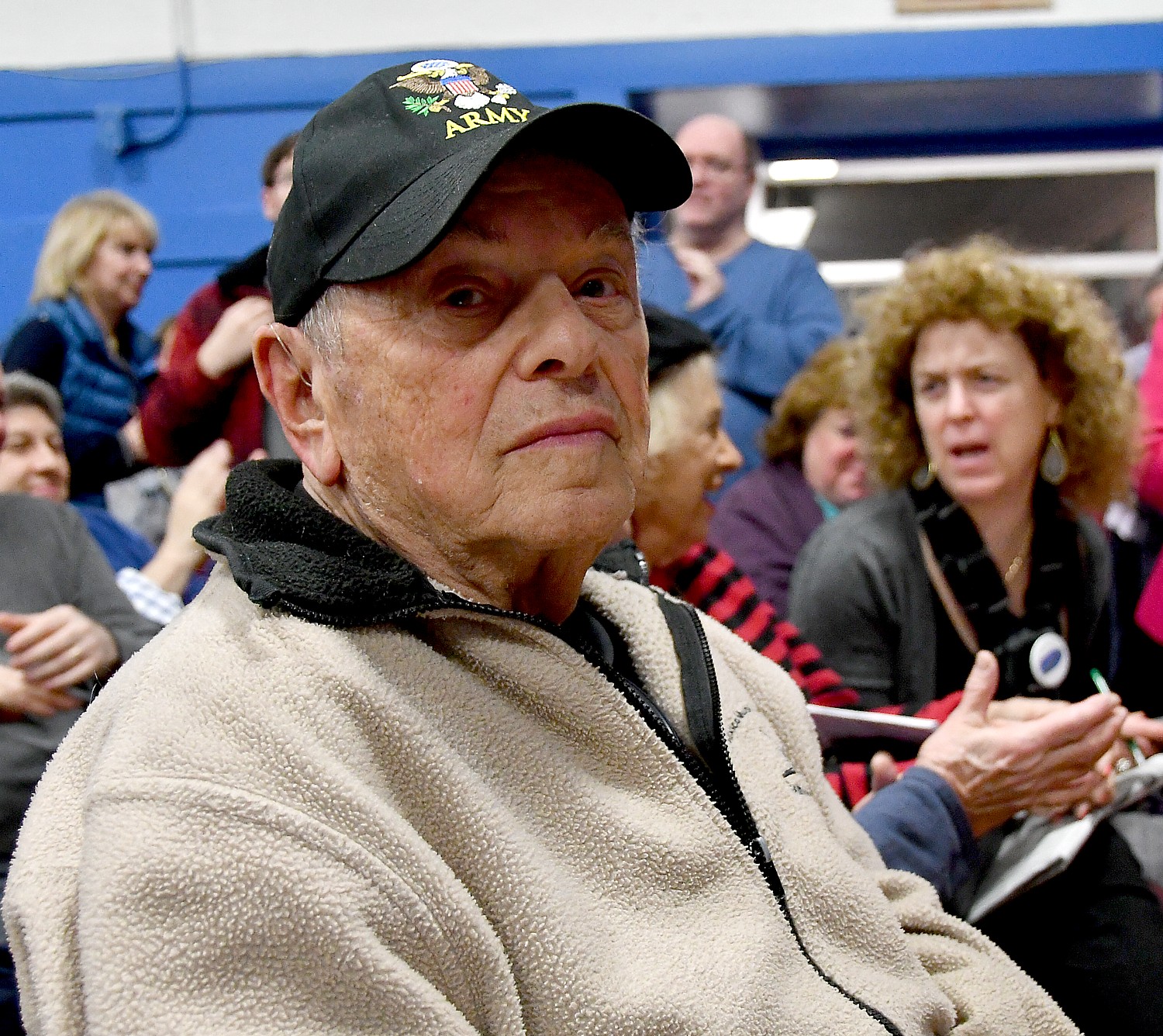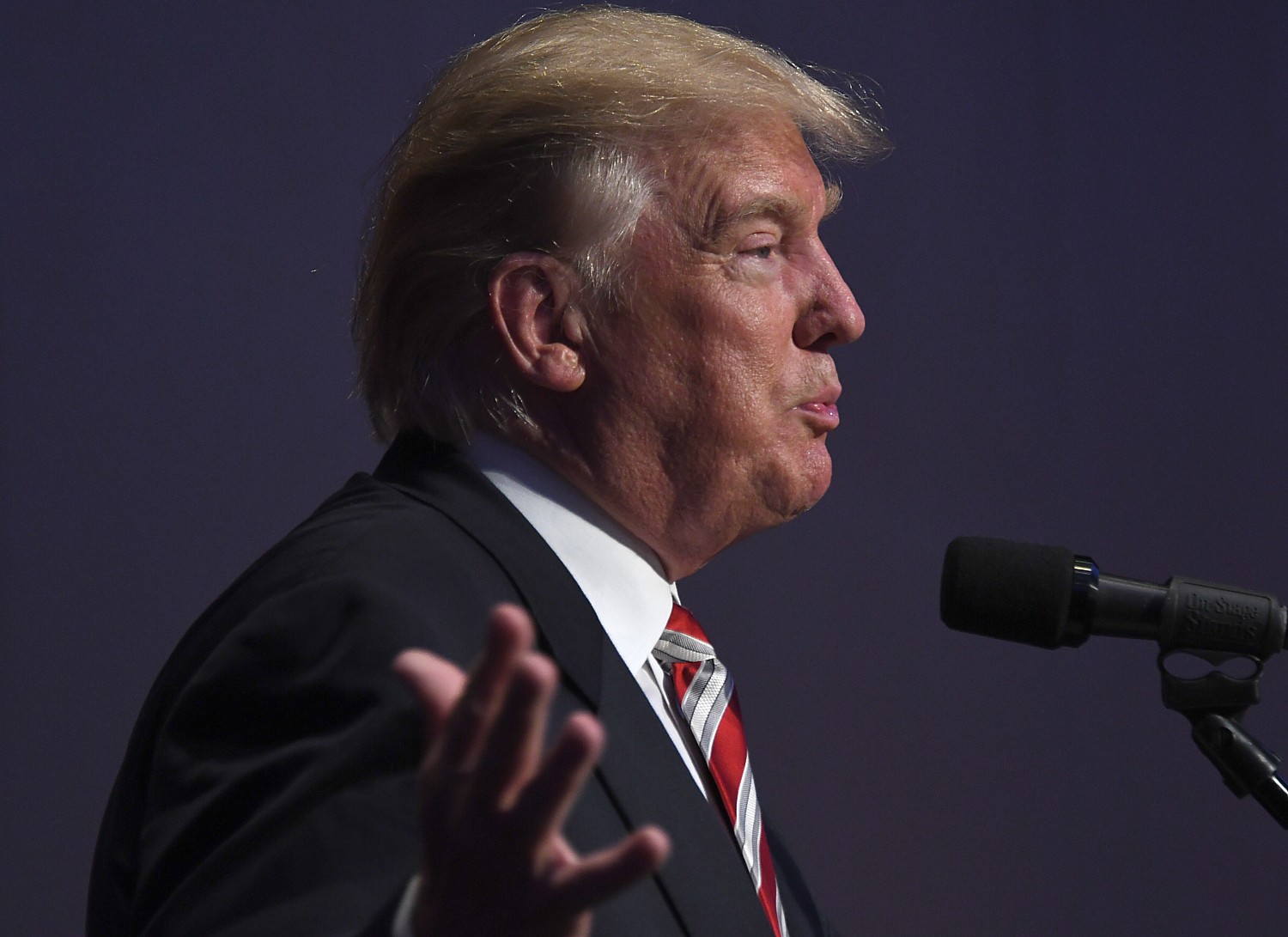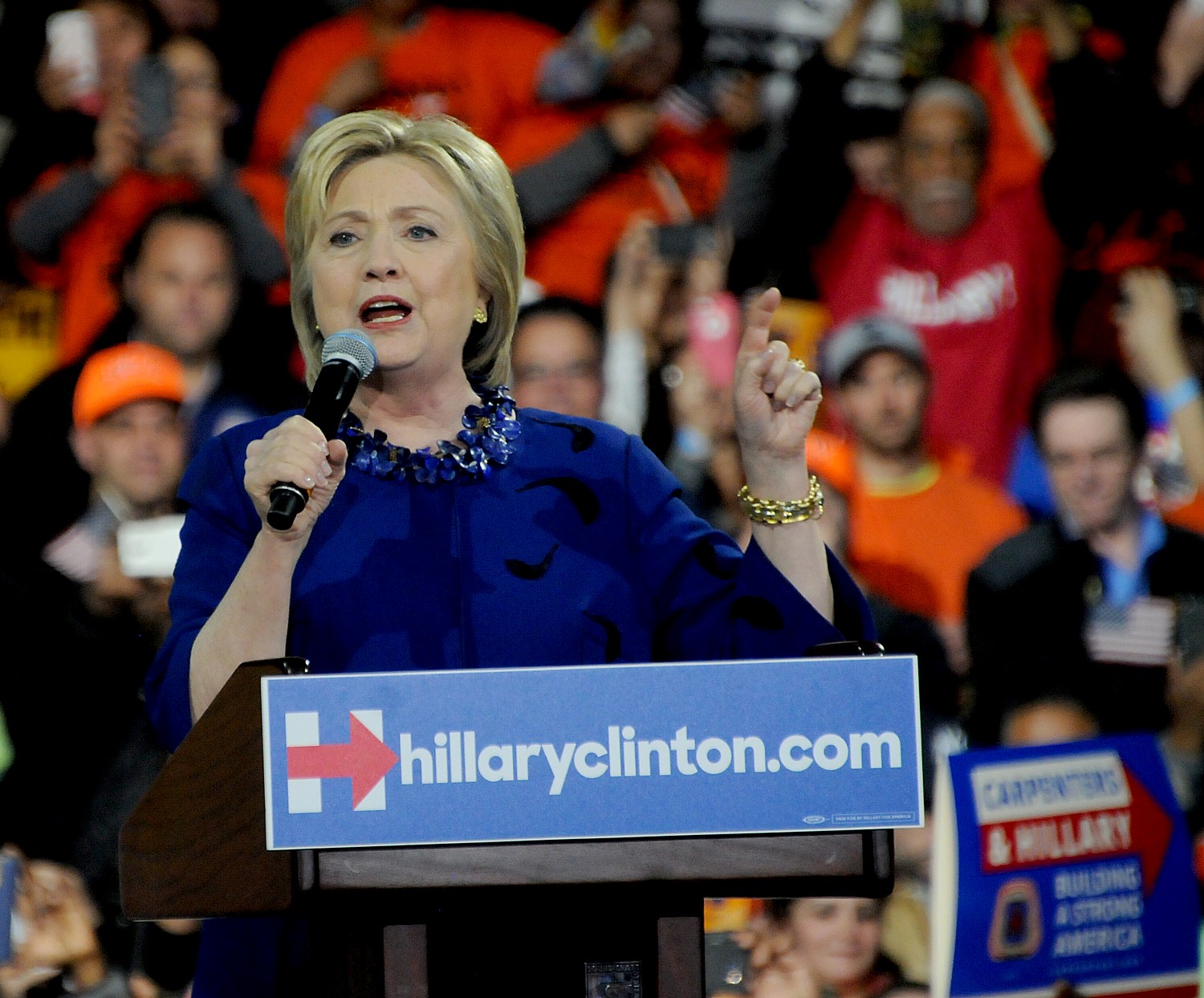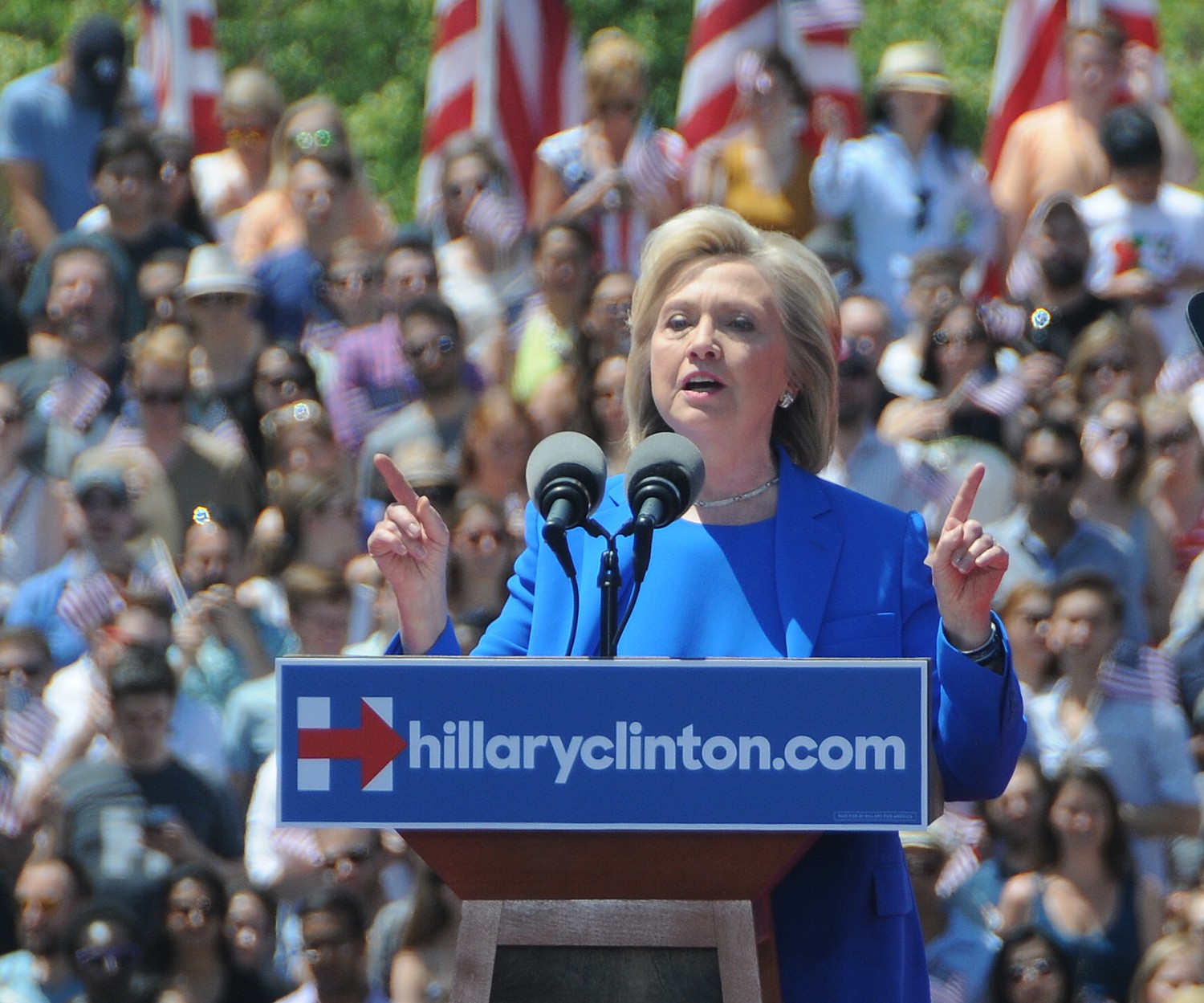
| Trump, in an address to the nation from the Oval Office, tried to calm fears and most importantly (for him) calm the financial markets after the World Health Organization declared the coronavirus a pandemic and chided nations for underplaying the crisis. Trump spent most of the time self-congratulating himself, calling the crisis “unprecedented” (it’s not), and his actions “historic” (hardly). Trump said nothing about making the health care infrastructure work to save Americans from suffering and needless dying, or for bolstering finances for people who have lost their means of earning money, paying bills, caring for children. His solution, to unilaterally ban travel from Europe (not UK) is absurd. Still no idea how many Americans harbor the infection. He used words like “unprecedented” when this is hardly unprecedented (Spanish flu, Swine flu, Ebola, and months of seeing what happened in China, South Korea, Italy). He kept saying that America will get by because we are the strongest, smartest, best nation that ever existed. Trump’s solution is medieval: pull up the drawbridge, build a wall against foreign invasion. Balderdash. And by the way, YOU DIDN’T BUILD THAT: the strong economy was bequeathed by Obama and other predecessors that Trump is frittering away with $1 trillion budget deficits despite (as Trump constantly claims) a historic, strong economy. And what does strong military have to do with coronavirus pandemic? The amount of back-slapping Trump does to himself (“unprecedented steps” which are hardly unprecedented or even dramatic or adequate or on target for the health crisis at hand), and his sychophants, even the “experts” have had to lather praise is disgusting. As for abandoning the partisanship, he means “adore me, go along with whatever I say.” Immediately after, he attacked Nancy Pelosi and Democrats. Here s the speech annotated – Karen Rubin/news-photos-features.com. |
| REMARKS BY PRESIDENT TRUMP IN ADDRESS TO THE NATION Oval Office 9:02 P.M. EDT THE PRESIDENT: My fellow Americans: Tonight, I want to speak with you about our nation’s unprecedented response to the coronavirus outbreak that started in China and is now spreading throughout the world. Today, the World Health Organization officially announced that this is a global pandemic. We have been in frequent contact with our allies, and we are marshalling the full power of the federal government and the private sector to protect the American people. [And yet the European Union was blindsided by Trump’s sudden ban on travel from Europe but not the UK]. This is the most aggressive and comprehensive effort to confront a foreign virus in modern history. I am confident that by counting and continuing to take these tough measures, we will significantly reduce the threat to our citizens, and we will ultimately and expeditiously defeat this virus. From the beginning of time, nations and people have faced unforeseen challenges, including large-scale and very dangerous health threats. This is the way it always was and always will be. It only matters how you respond, and we are responding with great speed and professionalism. [Hardly ‘unforeseen’ when the outbreak began in December in China and his first response came in March after pooh-poohing.] Our team is the best anywhere in the world. At the very start of the outbreak, we instituted sweeping travel restrictions on China and put in place the first federally mandated quarantine in over 50 years. We declared a public health emergency and issued the highest level of travel warning on other countries as the virus spread its horrible infection. And taking early intense action, we have seen dramatically fewer cases of the virus in the United States than are now present in Europe. [Except you really don’t know how many Americans are harboring the coronavirus because there hasn’t been adequate testing. And back in January, when Seattle doctor suspected coronavirus, federal agencies refused allowing testing, continued to reject the test kits from W.H.O. and relied on faulty, inadequate tests of its own.] The European Union failed to take the same precautions and restrict travel from China and other hotspots. As a result, a large number of new clusters in the United States were seeded by travelers from Europe. [That is one of Trump’s ‘blame others’ ‘blame them’ ‘blame Europe’ out of his ass comments. He doesn’t know how the infection came here or where it came from. Those cruise goers didn’t come from Europe.] After consulting with our top government health professionals, I have decided to take several strong but necessary actions to protect the health and wellbeing of all Americans. To keep new cases from entering our shores, we will be suspending all travel from Europe to the United States for the next 30 days. The new rules will go into effect Friday at midnight. These restrictions will be adjusted subject to conditions on the ground. There will be exemptions for Americans who have undergone appropriate screenings, and these prohibitions will not only apply to the tremendous amount of trade and cargo, but various other things as we get approval. Anything coming from Europe to the United States is what we are discussing. These restrictions will also not apply to the United Kingdom. At the same time, we are monitoring the situation in China and in South Korea. And, as their situation improves, we will reevaluate the restrictions and warnings that are currently in place for a possible early opening. [There is no travel ban on South Korea.] Earlier this week, I met with the leaders of health insurance industry who have agreed to waive all copayments for coronavirus treatments, extend insurance coverage to these treatments, and to prevent surprise medical billing. We are cutting massive amounts of red tape to make antiviral therapies available in record time. These treatments will significantly reduce the impact and reach of the virus. [Treatment still not likely to be available for a year.] Additionally, last week, I signed into law an $8.3 billion funding bill to help CDC and other government agencies fight the virus and support vaccines, treatments, and distribution of medical supplies. Testing and testing capabilities are expanding rapidly, day by day. We are moving very quickly. [Who will get that money and supplies? Will Trump steer to “loyal” states and communities like Texas and Florida, and away from places like New York, California, Massachusetts, just as he did with Ukraine’s military aid, George w. Bush did with anti-terror funding after 9/11 and Chris Christie did by shutting down the George Washington bridge to punish Democratic mayors who refused to endorse him?] The vast majority of Americans: The risk is very, very low. Young and healthy people can expect to recover fully and quickly if they should get the virus. The highest risk is for elderly population with underlying health conditions. The elderly population must be very, very careful. [The problem here is that the ‘young, healthy’ people can transmit the infection to others who are vulnerable.] In particular, we are strongly advising that nursing homes for the elderly suspend all medically unnecessary visits. In general, older Americans should also avoid nonessential travel in crowded areas. My administration is coordinating directly with communities with the largest outbreaks, and we have issued guidance on school closures, social distancing, and reducing large gatherings. Smart action today will prevent the spread of the virus tomorrow. Every community faces different risks and it is critical for you to follow the guidelines of your local officials who are working closely with our federal health experts — and they are the best. [Here is the key piece: the federal government is failing and useless and has no clue what to do, so Trump needs to rely – and probably blame – state and local officials who are doing their best to keep up with the needs. But key policies need to be made at the federal level. See Nicholas Kristof, “12 Steps to Tackle the Coronavirus” in New York Times of what Trump should have said and done.] For all Americans, it is essential that everyone take extra precautions and practice good hygiene. Each of us has a role to play in defeating this virus. Wash your hands, clean often-used surfaces, cover your face and mouth if you sneeze or cough, and most of all, if you are sick or not feeling well, stay home. To ensure that working Americans impacted by the virus can stay home without fear of financial hardship, I will soon be taking emergency action, which is unprecedented, to provide financial relief. This will be targeted for workers who are ill, quarantined, or caring for others due to coronavirus. I will be asking Congress to take legislative action to extend this relief. Because of the economic policies that we have put into place over the last three years, we have the greatest economy anywhere in the world, by far. [To the extent the US has in fact has greatest economy in the world, it is largely because of his abuse of tariff wars, sanctions, ending aid to undermine other economies.] Our banks and financial institutions are fully capitalized and incredibly strong. [Thanks Obama! And Dodd Frank.] Our unemployment is at a historic low. This vast economic prosperity gives us flexibility, reserves, and resources to handle any threat that comes our way. [He neglects to mention the $1 trillion budget deficits he has run despite his ‘historic’ strong economy, low unemployment. The fact that 40% of all Americans don’t have $400 available to cover an emergency.] This is not a financial crisis, this is just a temporary moment of time that we will overcome together as a nation and as a world. [The next morning, the Dow plummeted another 2000 points, more than 7%, down to 21,400 from a high of 29,000 just a couple of weeks earlier. Trump was reported to have leveled a tirade at Federal Reserve Chair Powell for failing to cut interest rates even further than the half-point “emergency” cut a week ago.] However, to provide extra support for American workers, families, and businesses, tonight I am announcing the following additional actions: I am instructing the Small Business Administration to exercise available authority to provide capital and liquidity to firms affected by the coronavirus. Effective immediately, the SBA will begin providing economic loans in affected states and territories. These low-interest loans will help small businesses overcome temporary economic disruptions caused by the virus. To this end, I am asking Congress to increase funding for this program by an additional $50 billion. Using emergency authority, I will be instructing the Treasury Department to defer tax payments, without interest or penalties, for certain individuals and businesses negatively impacted. This action will provide more than $200 billion of additional liquidity to the economy. [How are the individuals and businesses chosen? What will this do to the Treasury’s ability to pay bills? How does starving the federal government of resources help the situation] Finally, I am calling on Congress to provide Americans with immediate payroll tax relief. Hopefully they will consider this very strongly. [Payroll tax only helps people who are earning wages, not the people who are laid off or lose their jobs. The amount of money is so miniscule, people don’t even realize. And how does starving Medicare and Social Security of funding help? Instead, should be requiring paid sick leave, unemployment benefits expanded to people with fewer hours and contract workers. See Nicholas Kristof.] We are at a critical time in the fight against the virus. We made a life-saving move with early action on China. Now we must take the same action with Europe. We will not delay. I will never hesitate to take any necessary steps to protect the lives, health, and safety of the American people. I will always put the wellbeing of America first. [Yet another undeserved pat on the back, and misguided focus on putting up walls instead of gearing up for the spreading epidemic in the country. Some 100 million are projected to get the illness; more than 1 million expected to die. Millions will jam emergency rooms and ICUs. There are only 1 million hospital beds and 700,000 of these are already occupied. People will die of heart attacks and other ailments because they cannot be accommodated. Doctors and nurses and health care workers will get sick or become so overworked they can’t function. Who is available to replace? What is Trump doing about that? Is he setting up mobile clinics, like MASH units? Sending out mobile testing vehicles. Doing drive-by testing as in South Korea which is handling 20,000 tests a day?] If we are vigilant — and we can reduce the chance of infection, which we will — we will significantly impede the transmission of the virus. The virus will not have a chance against us. No nation is more prepared or more resilient than the United States. We have the best economy, the most advanced healthcare, and the most talented doctors, scientists, and researchers anywhere in the world. [More jingoism, American Exceptionalism. America First. Balderdash. Basically his argument is, ‘We will defeat this epidemic because we are The Greatest.’ And by the way, YOU DIDN’T BUILD THAT! Obama and predecessors handed Trump a strong economy, rescued from the depths of the Great Recession. Obama created the Affordable Care Act which covered 30 million more people than before, controlled health care costs, enabled more people to become doctors, nurses, health care workers.] We are all in this together. We must put politics aside, stop the partisanship, and unify together as one nation and one family. [Biggest joke-on-America ever, since Trump, who wears a MAGA hat on CDC tour, and tells Pence not to praise Washington Governor Jay Inslee (“a snake”, and accuses Democrats and Nancy Pelosi of perpetrating a hoax in raising alarm about coronavirus in order to undermine him. As for abandoning the partisanship, what he really means, as Moscow Mitch always means when he uses the term “compromise” is “Do what we say, don’t criticize or point out why we are inept, corrupt, and out only for ourselves.”] [Trump assailed Democrats hours after he implored lawmakers to “stop the partisanship.” Then the markets cratered, unassuaged by his economic proposals, New York Times reported.] As history has proven time and time again, Americans always rise to the challenge and overcome adversity. Our future remains brighter than anyone can imagine. Acting with compassion and love, we will heal the sick, care for those in need, help our fellow citizens, and emerge from this challenge stronger and more unified than ever before. [Such pablum. Trump reads the teleprompter in a monotone, the sentences running one into another. He has no idea what he just said.] God bless you, and God bless America. Thank you. END 9:12 P.M. EDT |
See also: Cuomo Pleads with CDC to Allow Coronavirus Testing in Private Labs to Better Monitor, Contain Spread Coronavirus Epidemic: Warren Outlines Decisive Plan to Keep American Families Healthy & Stabilize Economy Sanders to Trump: Stop Playing Politics with our Health and National Security |

